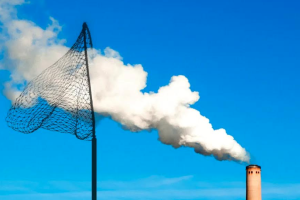 October 19, 2023
by Sera Simpson
Air
Climate change
October 19, 2023
by Sera Simpson
Air
Climate change
Carbon capture and storage is a complicated technology whose use and value confuses many. To address this confusion, this article explains the importance of carbon capture and provides solutions to support its development.
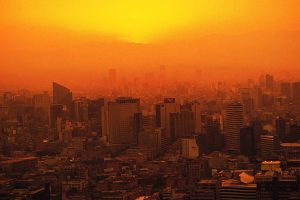 October 2, 2023
by Agnes Enochs
Air
Climate change
Litigation
State and Local
October 2, 2023
by Agnes Enochs
Air
Climate change
Litigation
State and Local
July 2023 was the hottest month on record. As extreme temperatures become the norm, many workers find themselves without adequate workplace protections. With heat-related deaths on the rise, more must be done to secure workers' safety in a warming world.
 February 6, 2023
by Paige Power Kendrick
Air
Energy
Fossil Fuels
February 6, 2023
by Paige Power Kendrick
Air
Energy
Fossil Fuels
The last few years, especially these last few months, have seen aviation emission regulation like never before. At home and abroad, the aviation industry appears to be making significant inroads relating to emissions from engines “typically used in…
 October 31, 2022
by Megan Algya
Air
International
Sustainability
October 31, 2022
by Megan Algya
Air
International
Sustainability
On September 21, 2022, the Senate voted 69-27 to ratify the 2016 Kigali Amendment to the Montreal Protocol, marking the first climate treaty approved by the Senate in decades.[1] The Montreal Protocol is an international environmental agreement to phase…
 April 7, 2022
by Liz Goldstein
Air
Regulations
April 7, 2022
by Liz Goldstein
Air
Regulations
What should regulators pay attention to as rocket launches become more commonplace?
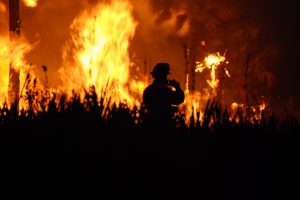 March 31, 2021
by Alec Williams
Air
Climate change
Litigation
Public Lands
State and Local
March 31, 2021
by Alec Williams
Air
Climate change
Litigation
Public Lands
State and Local
After a record-breaking wildfire season in 2020, lawsuits are likely to flood the dockets of federal and state courts across the United States. Wildfire liability determinations at either level can be complex, typically implicating many parties and exorbitant damage awards. However, in light of the projected impact of climate change on wildfire frequency and severity, such lawsuits may become increasingly commonplace.
By Alec Williams, Managing Editor
 January 15, 2021
by Sara Zaat
Air
Chemicals
Climate change
International
January 15, 2021
by Sara Zaat
Air
Chemicals
Climate change
International
Hydrofluorocarbons, an alternative to the ozone-depleting substances that damage the Earth’s protective ozone layer, are potent greenhouse gases that exacerbate climate change. These chemicals are scheduled for reduction under international law: the Kigali Amendment to the Montreal Protocol on Substances that Deplete the Ozone Layer. Will the United States join the majority of U.N. Member States in committing to phasing down its hydrofluorocarbon production and consumption in accordance with international law in a Biden administration?
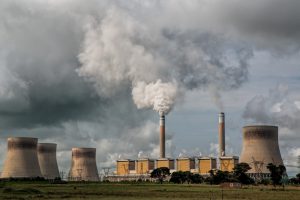 November 9, 2020
by Hunter Johnston
Air
Chemicals
Regulations
November 9, 2020
by Hunter Johnston
Air
Chemicals
Regulations
On October 1, 2020, the Environmental Protection Agency (EPA) finalized text for a final rule that proposed to change the way facilities that emit hazardous air pollutants (HAPs) are regulated under the Clean Air Act.[i] The rule, titled Reclassification of Major Sources as Area Sources Under Section 112 of the Clean Air Act, purports to implement a plain language interpretation of Section 112 of the Clean Air Act.[ii] In practical effect, the final rule provides that a “major source” can reclassify to “area source” status at any time after reducing its actual or potential hazardous air pollutants (HAP) emissions to below the major source threshold of 10 tons per year (tpy) of any single HAP and 25 tpy of any combination of HAPs.[iii] Additionally, the rule amends Clean Air Act requirements regarding compliance dates, notification, and record keeping.[iv]
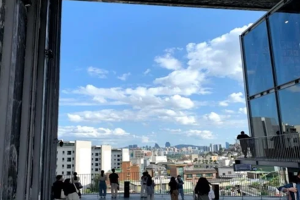 October 25, 2020
by Hyunjin Kim
Air
Chemicals
Climate change
Fossil Fuels
International
October 25, 2020
by Hyunjin Kim
Air
Chemicals
Climate change
Fossil Fuels
International
"Normal was a crisis." When we say we want to "go back to normal," do we really mean the world exactly as we left it? Or, could we use COVID as a means of building something better than what we had, perhaps greener?
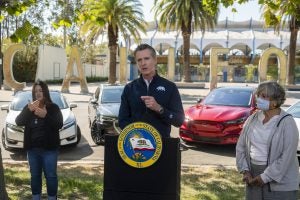 October 20, 2020
by Camden Douglas
Air
Climate change
Fossil Fuels
Regulations
State and Local
October 20, 2020
by Camden Douglas
Air
Climate change
Fossil Fuels
Regulations
State and Local
On September 23, 2020, California Governor Gavin Newson issued an executive order[1] that is expected to reduce the impact of climate change by drastically transforming the State's transportation industry. California experiences many unique climate change-related problems. For instance, as a result of climate change, the duration of California's wildfire season has more than doubled since 1980.[2] Indeed, this year, California is experiencing a record-breaking burn,[3] with wildfires scorching millions of acres of land.[4] The executive order, in an attempt to attenuate some of these climate change-related impacts on the State, requires all new passenger vehicles sold in California to be zero-emission by 2035, effectively banning the sale of new gasoline-powered vehicles in just fifteen years.[5]











